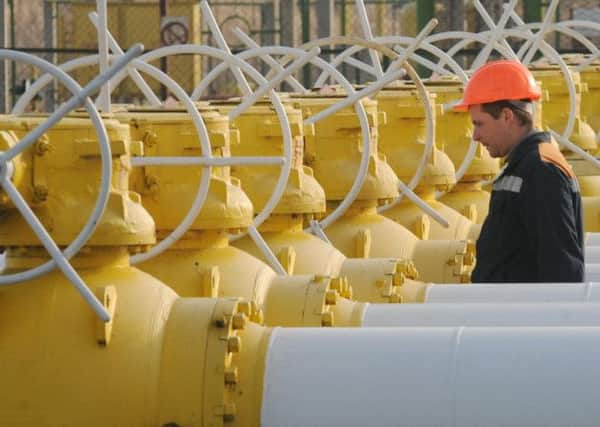UK to import 70% of energy by 2020: Centrica boss


Sam Laidlaw told an international energy conference yesterday that investment in UK energy generation had almost halted because of political uncertainty – and that the Ukraine crisis was a warning call.
Speaking at the CERAWeek Global Gas Plenary in Houston, Texas, Laidlaw said: “Events in Ukraine over the past few days have given us a sharp reminder of where our priorities should lie.”
Advertisement
Hide AdAdvertisement
Hide AdRussia is a major supplier of gas to western Europe via pipelines through Ukraine. Laidlaw said ultimately “everything hinges” on security of supply, but it was “in danger of becoming the ‘forgotten priority’ of energy policy”.
On the home front, the Centrica chief executive claimed that investment had been stifled by mounting political intervention in the energy market, such as the price freeze pledge made by Labour should it win the next election.
Laidlaw said the sector could also face a lengthy competition inquiry, and hit out at the “blithe talk of breaking up an already fragmented industry”.
And he told international industry leaders that with 80 per cent of UK homes heated by gas, the country needed to diversify sources. An estimated 3.7 gigawatts of UK coal-fired generating capacity will shut down by the end of 2015 due to European directives to curb emissions.
He said: “In primary energy, the UK’s production of gas is falling rapidly. North Sea oil and gas output has fallen by 38 per cent over the last three years.
“By 2020 we will be reliant on imports to meet 70 per cent of the country’s gas needs. So when it comes to security of supply, there is a pressing need for solutions.”
The UK’s key “reserve capacity” is forecast to shrink to 4 per cent, which some claim will heighten the possibility of power cuts.
Laidlaw added that shale gas – extracted using the controversial fracking process – could contribute significantly to the UK’s future energy mix, but its potential was unproven.
Advertisement
Hide AdAdvertisement
Hide AdFracking, which involves injecting water, sand and chemicals deep into rock formations to release hydrocarbons, is being used in the US. But it is in only the early exploration stages in Britain, amid environmental criticism.
Analysts said yesterday that Britain was in a relatively strong position with regard to Russian gas supplies through Ukraine, as it accounts for just 1 per cent of UK imports. That compares to about 50 per cent of Germany’s imports.
About half of the UK’s gas is currently imported. Three-quarters of this is through pipelines from Norway, Belgium and the Netherlands, the rest is imported by sea in liquefied form.
Tom Greatrex, Labour MP for Rutherglen and Hamilton West and the shadow energy minister, said: “We need to face up to the fact that North Sea gas is declining and the amount of gas we import is increasing.
“That is why it is vitally important we continue with an approach of developing a balanced energy mix including new nuclear, renewables and carbon capture and storage.”